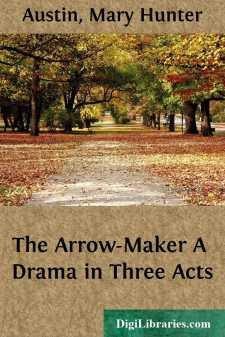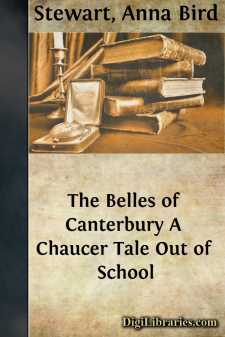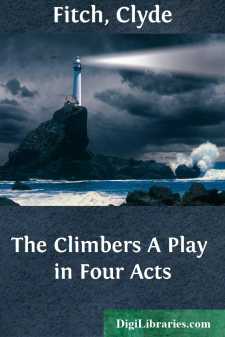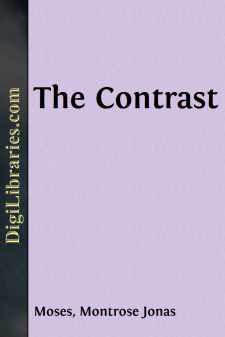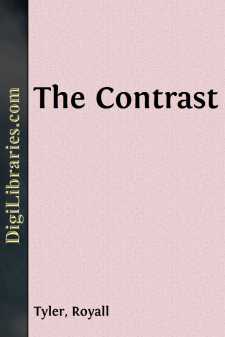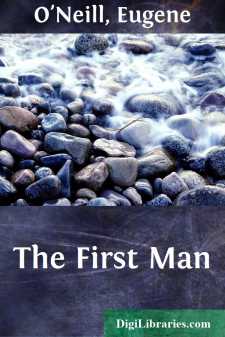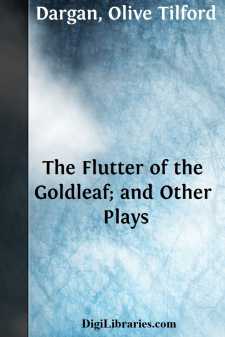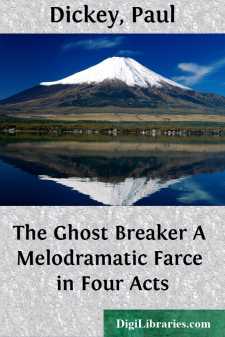Drama
American Books
Sort by:
MR. AND MRS. EDWARD ROBERTS; THE CHOREWOMAN Mrs. Roberts, with many proofs of an afternoon's shopping in her hands and arms, appears at the door of the ladies' room, opening from the public hall, and studies the interior with a searching gaze, which develops a few suburban shoppers scattered over the settees, with their bags and packages, and two or three old ladies in the rocking-chairs. The...
more...
The greatest difficulty to be met in the writing of an Indian play is the extensive misinformation about Indians. Any real aboriginal of my acquaintance resembles his prototype in the public mind about as much as he does the high-nosed, wooden sign of a tobacco store, the fact being that, among the fifty-eight linguistic groups of American aboriginals, customs, traits, and beliefs differ as greatly as...
more...
COSTUMES. The simplicity of the costuming as well as of the stage setting makes the play an easy one for amateurs to produce. The dress of the four school girls should be as modern as possible. Their hair should be elaborately arranged. Hippolyta should wear the dress of an Amazon, armor if possible, or a short skirt, sandals laced high with crossed strings, waist to match the skirt, a crown, and a...
more...
by:
Clyde Fitch
ACT I A drawing-room at the Hunters', handsomely and artistically furnished. The woodwork and furniture are in the period of Louis XVI. The walls and furniture are covered with yellow brocade, and the curtains are of the same golden material. At the back are two large windows which give out on Fifth Avenue, opposite the Park, the trees of which are seen across the way. At Left is a double doorway,...
more...
ROYALL TYLER (1757-1826) William Dunlap is considered the father of the American Theatre, and anyone who reads his history of the American Theatre will see how firmly founded are his claims to this title. But the first American play to be written by a native, and to gain the distinction of anything like a "run" is "The Contrast," by Royall Tyler. Unfortunately for us, the three hundred...
more...
by:
Royall Tyler
THE 'Contrast' was the first American play ever performed in public by a company of professional actors. Several plays by native authors had been previously published, the more noteworthy being the 'Prince of Parthia,' a tragedy by Thomas Godfrey of Philadelphia, which was probably written, and was offered to Hallam's company in 1759 (but not produced), and was printed in 1765,...
more...
by:
John Leacock
JOHN LEACOCK Among the elusive figures of early American Drama stands John Leacock, author of "The Fall of British Tyranny," published in 1776, in Philadelphia. Even more elusive is the identification, inasmuch as his name has been spelled variously Leacock, Lacock, and Laycock. To add to the confusion, Watson's "Annals of Philadelphia," on the reminiscent word of an old resident...
more...
by:
Eugene O'Neill
ACT I SCENE—Living-room of CURTIS JAYSON'S house in Bridgetown, Conn. A large, comfortable room. On the left, an arm-chair, a big open fireplace, a writing desk with chair in far left corner. On this side there is also a door leading into CURTIS' study. In the rear, center, a double doorway opening on the hall and the entryway. Bookcases are built into the wall on both sides of this...
more...
THE FLUTTER OF THE GOLDLEAF Scene: Laboratory in the attic of the Warner cottage. At right, toward rear, entrance from down-stairs. A rude partition, left, with door in centre. Window centre rear. Large kitchen table loaded with apparatus. Shelves, similarly loaded, against wall near table, right. Wires strung about. A rude couch, bench, and several wooden chairs. Time, about 8 p.m. Lamp burns on...
more...
by:
Paul Dickey
THE CAST Princess Maria Theresa of Aragon. Warren Jarvis, of Kentucky. Nita, the Princess' Maid. House Detective, Manhattan Hotel. Rusty Snow, Warren Jarvis' Colored Servant. Detectives, from Police Headquarters. Hotel Porter. Steward, on S.S. Aquitania. Carlos, Duke d'Alva. Dolores, the Innkeeper's Daughter. Vardos, Messenger to the Missing Prince. Don Robledo, a Soldier of...
more...



